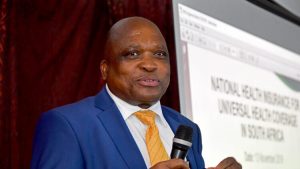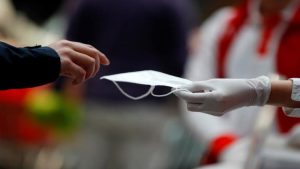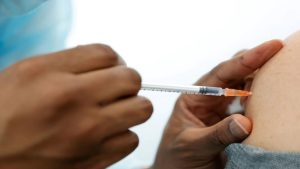The COVID-19 pandemic caught the world, and certainly South Africa, by surprise. Its effects on the economy, jobs, and livelihoods, particularly among the poor, are still being felt.
Scientists believe a lot of lessons have been learned from this pandemic.
Professor Koleka Mlisana, from the National Health Laboratory Services, says the pandemic exposed some of the shortcomings in the healthcare system.
Scientists say that having strong and well-funded surveillance systems in place will be key in preparing for the next pandemic. This emerged during a dialogue on perspectives on pandemic preparedness in Sandton, north of Johannesburg.
“If we are talking of a health pandemic, then our health system needs to be strengthened. And we are way behind that as a country, we need a lot actually. I think the other thing that COVID did, is expose how weak our health system is, so this is an opportunity for us as a country. How do we strengthen that and ensure that we are ready for the next pandemic”, says Prof Mlisana.
Need for local products
Dr Rachel Chikwamba from the Council for Scientific and Industrial Research (CSIR) believes the COVID-19 pandemic has taught us that investing in science and research skills is key. But that there is a need to increase the speed at which the country innovates and creates products.
“We needed ventilators and we, in a very short space of time sat down, put together a design, met them and use them. We needed to produce diagnostic kits. So, what we have learned is that we can move at pace to take things that would normally take a lot longer to move from concept, to prototype to product on the market”, says Dr Chikwamba.
While commendable, there are some who believe there were inconsistencies and a lack of transparency from scientists and government in communicating information about Covid-19 to the public. In most cases, the messages were too complex for ordinary people to understand. Mia Malan is editor-in-chief of the Bhekisisa Health Journalism Centre, says it is important to communicate the pandemic message in languages that ordinary people understand.
“I don’t think we were prepared well enough for that when the pandemic started. So, when we started most of the language was in English. But as it moved along I certainly saw Covid communications campaigns that had all the messages in all the languages. You cannot expect people to understand knowledge that is not in their language”, says Malan.
SA always reactive
As the world prepares for the next pandemic, the scientists believe South Africa needs to prepare adequately. Dr Morena Makhoana is CEO of BIOVAC, which was formed to produce vaccines locally. He says there are global institutions that are already getting ready for the next pandemic, unlike South Africa, which is always reactive.
“It’s an ambulance type of approach. Wait for an accident and then the ambulance goes. How about we try and prevent the accident from happening. In the vaccine world, promote and support local vaccine manufacturing on a continuous basis”, says Dr Makhoana.
Scientists believe increased surveillance and vigilance at ports of entry will help identify any risks.
Chikwamba explains.
“Scanning the horizon to see what might be coming. Understanding what the risks might be associated with what is coming. Looking at what is the likelihood that risk materialising. Supported by education of the public to make sure that we do not impose things that they mistrust because they do not understand”, Dr Chikwamba added.






